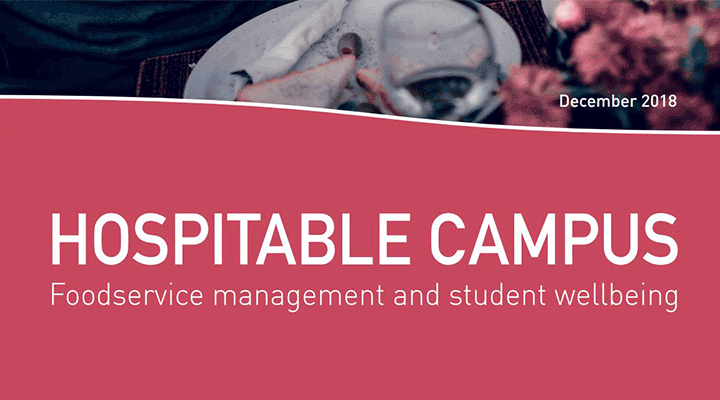√Self spaces
Create an inclusive atmosphere
Hospitality is often delivered in relaxed social environments where perceived barriers between individuals and groups can be broken down and positive relationships can be established. Make your environment multi-functional, with furnishings and layouts that support various activities. Students can then reconfigure the space to suit their needs.
Think strategically…
The design of hospitality spaces is often dominated by operational issues, with less attention being paid to intended outcomes that are not traditionally the responsibility of catering departments, including student wellbeing. This requires fresh thinking on the potential that lies within hospitality spaces. Yes, their primary functional purpose may be the provision of food and drink, but they are also environments that carry symbolic significance for guests and employees.
Get in touch with your TUCO contact for more information about their Hospitable Campus report
